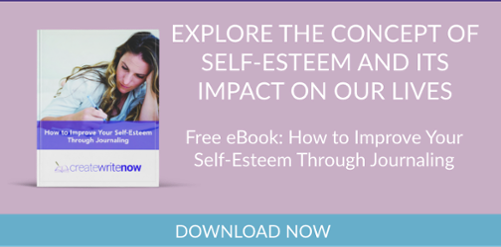Low self-esteem is a surprisingly common affliction. Most of us, at some point in our lives, experience at least temporary bouts of low self-esteem after suffering some kind of setback or experiencing some sort of negative event.
For some, it may be that they’ve been exposed to emotional or psychological abuse from someone close to them or experienced volatile social or familial situations that can wreak psychological and self-worth havoc. If these kinds of negative inputs continue for any length of time, serious, long-term ramifications can result that can trigger a number of problems, such as drug or alcohol addictions, harm to themselves or others, even suicide. This kind of destructive internalization needs to be nipped in the bud before it can fester and create negative effects from which it may be difficult to recover.

Unfortunately, current trends such as the heavy use of social media can magnify and multiply negative self-impressions. People are quick to criticize, nitpick, and find fault with others online, when they’re not face-to-face with their victims. This can be extremely damaging to individuals with fragile or at-risk psyches.
But to start, it’s important to understand what self-esteem is. Fundamentally, it’s simply how you accept who you are. Individuals with high self-esteem are satisfied with who they are, what they’ve accomplished, and where they’re going in life. They’re happy in their own skins and love – or at least like – who they are, regardless of faults and any perceived shortcomings.
Individuals with low self-esteem are highly critical of who they are. They magnify every little perceived fault or weakness, letting those things eat away at their self-worth and causing them to belittle themselves in a cycle of self-condemnation. It’s a toxic, unproductive, and ultimately destructive way to live.
Fortunately, there are strategies for helping us accept ourselves unconditionally and learn to love ourselves, despite any very-human flaws. Use journaling to begin a daily self-care practice in which you spend quality time with yourself to start understanding your feelings and follow the paths of those feelings and thoughts back to their origins. You need to identify the sources to correct the problems.
Basic behavioral changes to put yourself first in life will go a long way in improving self-esteem. To start:
-
Accept yourself
The first strategy for improving your self-esteem is to fully and honestly embrace who you are. We all have strengths and weaknesses, but for some reason we get bogged down focusing on areas in which we struggle and forget to develop and embrace our strengths. Knowing what you do best sets you up to succeed and be excellent every day. But acceptance also means acknowledging your imperfections and flaws, and working to improve upon them over time. Take an inventory of your strengths, by considering, “When am I at my best?” “What am I usually doing, and how does it make me feel?” Continue to cultivate the attributes that make you feel confident, and incorporate these into your daily life as much as possible.
1. Model confident individuals
The people we associate with have a major impact on who we are. Whether we realize it or not, we acquire much of who we are from modeling others, whether it’s constructive or destructive. One of the best ways to begin feeling more confident is to understand how a confident person thinks, behaves, believes, and interacts with others. Much insight can be gained from someone who is comfortable with their self-worth and confident in their own potential. Connect with someone who you admire and learn from them.
2. Be present
People who spend an inordinate amount of time obsessing about their past often find it very difficult to be happy in the present. A major source of the anxiety that so many individuals experience today is the desire to re-live and “correct” past wrongs and an unwillingness to stay grounded in the present and create a more positive outlook on life and how we live it now.
3. Take risks
We tend to avoid anything that can hurt our self-esteem. We’re afraid of doing something that can make us “look bad” or “feel stupid.” It’s important to understand that we all make mistakes – no one is immune from doing something “wrong.” Failing and learning from mistakes is a fundamental way humans improve themselves. Start exposing yourself to things you’ve been avoiding to protect your self-esteem – you’ll be surprised at the positive change it can make in your life.
4. Be mindful
Mindfulness is a simple yet powerful form of meditation that merely requires that you pay close attention to your thoughts as they arise, pass through your consciousness, and dissipate. Practicing mindfulness enables you to objectively assess your thoughts as they emerge and analyze what you are experiencing. Mindfulness makes it possible for you to see your thoughts and actions for what they truly are.
5. Stop comparing
Look closely at yourself and if there is something you do not like, go ahead and change it. Comparing yourself with others will not help you resolve your issues, it will only increase their negative hold on you. Everyone is different, and that’s a good thing. It’s what makes you, you. Stop comparing and start empowering yourself.
6. Learn to be optimistic
Having an optimistic outlook provides the key to staying more positive, resilient, and confident. An optimistic outlook will help you solve problems and stay engaged with your goals and aspirations. The way we feel and think about ourselves influences every situation and encounter we have. Being positive and optimistic crowds out negativity and causes the people we associate with to be positive as well. Optimism breeds optimism.
Journaling is an effective way to utilize these seven strategies -- to engage with your past self, explore your experiences, and develop a new perspective on the events and experiences that created your low self-esteem in the first place. Only by accepting yourself as you are and being your own biggest fan will you ever convince others to show you the love, respect, and support you deserve.
Are you struggling with low self-esteem? Learn strategies to improve your self-esteem – their influence and impact on our lives and ways to encourage feeling better about ourselves by downloading the eBook titled "How to Improve Your Self Esteem Through Journaling."



Leave Comment